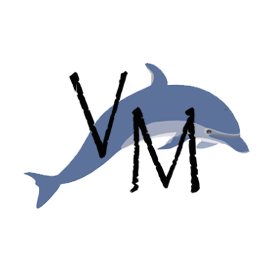Computer Curriculum
Your child will be doing the following things in the computer lab:
- Keyboarding skills (UPDATED! - District Keyboarding Rubric)
For grades K-1 the students will start identifying the letters, and the location of the keys in relation to the keyboard, will be introduced to the correct fingering placement.
For grades 2-3 the students will be introduced to basic typing skills, where they will continue practicing the correct finger placement and will be doing typing exercises.
For grades 4-6, the students will be utilizing typing lessons to continue expanding their keyboarding skills that entails having a lesson on a specific key and a timed test that can show them their progress as they start mastering these skills with a set typing speed and accuracy per grade level.
- Productivity – using GAFE applications such as Google Docs, Sheets and Slides
For grade 1, the students will learn the use of certain keys required to type a sentence.
For grade 2, the students will continue expanding their knowledge of the use of additional keys required to type a paragraph.
For grade 3-6 the students will be able to type multi-paragraph using a variety of word processing tools, create a visual presentations and utilize a spreadsheet to show data.

- Digital Literacy For grade K, the students will learn how to use a mouse and open programs.For grade 1, the students will learn how to open and retrieve files, open a web browser and navigate a webpage, and they will also learn to how to log in using a username and password.For grade 2, the students will have learned all previous skills and know the difference between Save and Save As. They will learn how to locate information on a specific webpage and use the refresh and back buttons on a web browser.For grade 3, the students will have learned all previous skills and learn editing tools, and will learn how to cite websites.
For grades 4 the students will review and continue practicing all previous skills and can create a list of links and perform smart and effective web searches.
For grades 5-6, the students will be proficient in all previously learned computer skills, create basic citations using the MLA format, understand web safe and netiquette.
- Digital Citizenship - lessons will be taught in Nearpod program. Digital citizenship refers to responsible technology usage, teaching digital citizenship is essential to helping students achieve and understand digital literacy, as well as ensuring cyberbullying prevention, online safety, digital responsibility, and digital health and wellness.
Grade K Lessons - Going Places Safely, ABC Searching, Keep It Private, My Creative Work, Sending Email.
Grade 1 Lessons - Staying Safe Online, Screen Out the Mean, Follow the Digital Trail, Using Keywords, Sites I like.
Grade 2 Lessons - Powerful Passwords, My Online Community, Things for Sale, Show Respect Online, Writing Good Emails.
Grade 3 Lessons - Rings of Responsibility, The Power of Words, The Key to Keywords, Private and Personal Information, Whose is It, Anyway?
Grade 4 Lessons - Strong Passwords, Digital Citizenship Pledge, Picture Perfect, How to Cite a Site, You've Won a Prize!
Grade 5 Lessons - Talking Safely Online, What's Cyberbullying?, Super Digital Citizen, Privacy Rules, Selling Stereotypes.
Grade 6 Lessons - Scams & Schemes, Cyberbullying:Be Upstanding, Digital Life 101, Strategic Searching, A Creator's Rights
